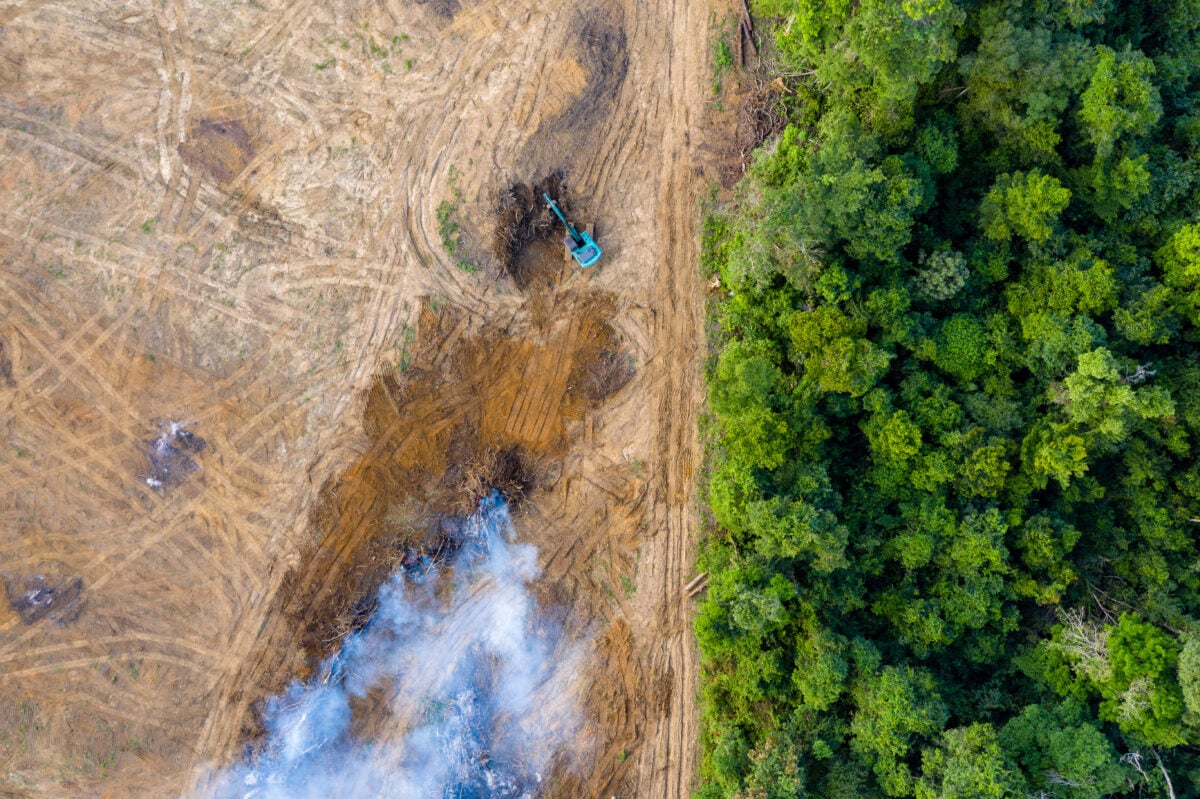A new report by the Food Foundation says that a UK-wide shift towards plant-based diets could reduce projected species extinction over the next century by 58 percent, thereby protecting biodiversity, the environment, and the food system itself.
The Food Foundation is encouraging companies to accelerate a transition to plant-based foods in response to this prediction, and also warns that government failure to address the intersecting crises of climate change, food system collapse, and biodiversity loss will lead to greater future costs for the British economy.
Read more: Denmark Introduces ‘Plant-Based Diplomacy Initiative’
The Food Foundation is one of several groups advising the UK’s Labour government on food strategy. The food policy-focused charity published the new report, titled The Nature and Biodiversity Cost of Our Diets: A Recipe for Extinction?, in August.
In addition to the urgent need to swap animal products for plant-based foods, other key messages from the report include: That the agriculture sector is dependent on nature capital, but contributes disproportionately to environmental degradation; that experts predict nature loss will reduce GDP growth by more than the 2008 financial crisis or the COVID-19 pandemic; that only five percent of companies across more than 20 industries currently assess their nature-related impacts; and that successful food production and biodiversity are inextricably linked.
The current food system is ‘severely damaging’ nature and biodiversity, says report
The report also highlighted similar calls from various other climate, environment, and health-focused organizations for an increased focus on sustainable plant foods.
“Our food system is severely damaging the planet, contributing heavily to both greenhouse gas emissions, nature and biodiversity loss, and exerting pressure on ecosystems in multiple, interlinked ways,” said the report’s authors. “But rethinking what we eat and how we produce food has the potential to mitigate the harm current food systems are having on nature and the environment, as well as unlocking significant benefits for public health and the economy.”
Read more: Seaweed, 3D Printing, And Holograms: Are These The British Food Trends Of The Future?
Plant-based diets and biodiversity

A landmark State of Nature release from 2023 found that around one in six species are at risk of going extinct in the UK, including uniquely important birds like Scotland’s Arctic Skua. Meanwhile, a previous report from The Food Foundation found that reducing meat intake in favor of plant-based foods could help to reverse the decline of more than 500 species in the UK already facing unique challenges.
In February, the Climate Change Committee (CCC) called for British people to cut their meat consumption by 260g per week, the equivalent of around two doner kebabs or two fry-ups per day, in order to meet national emissions targets. While additional behavioral changes are also required to fight the climate crisis, nationwide meat reduction remains an essential part of climate mitigation for the UK.
“Changing how we produce food and shifting diets towards more healthy and sustainable plant-rich patterns ought to be a key strategy for ensuring the sustainability of our food supply and safeguarding our future,” wrote the new report’s authors.
Read more: Plant-Based Diets Represent ‘Significant Opportunity’ To Address Global Challenges, Says Study






